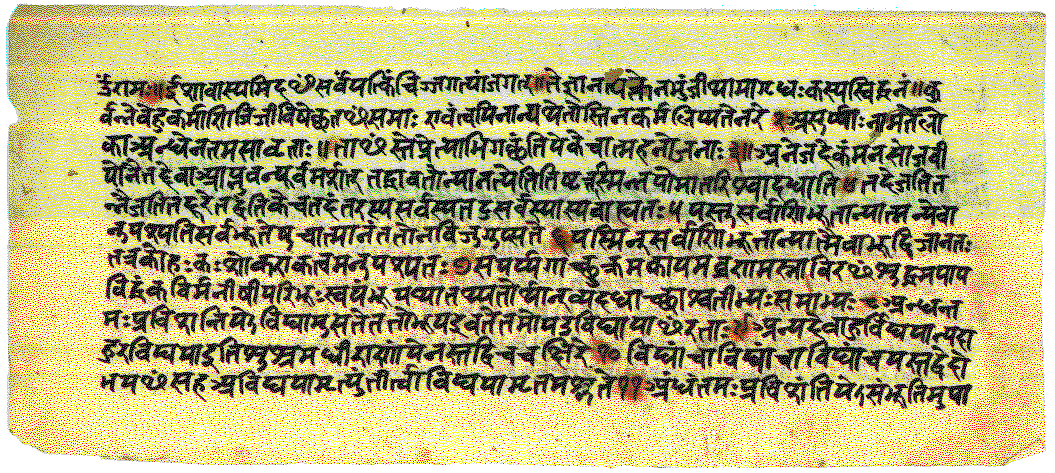TURĪYA MANTRA: KEYS TO LIBERATION!
The main import of Maṇḍūkya Upaniṣad and Guaḍapāda’s Karikās is to establish the true nature of ātmā, the Self, the Pure Consciousness. It provides the entire methodology (prakriya) to cognize one’s self within one’s own Self. It employs the avasthā traya viveka to realize one’s Self. It utilizes the totality of experience in all the three states that are common to all human beings: the waking (jāgrat), the dream (svapna), and deep sleep (suṣupti).
In waking state, we have subject-object experience. The “me-notion,” the empirical ego acts as “pseudo-subject” during the waking state and we experience the world as an “objective” reality. Why have we called it a “pseudo-subject?” It is because in the light of true Self-Knowledge, it is proved to be an observable “object” also, just like the objects of the external world.
In the dream state, we also have a “dream” subject-object experience. What we fail to notice is that the “dream” subject (ego) and dream objects are totally different from the waking subject (ego) and waking objects, since both states are mutually exclusive.
Let’s say you ate to your heart’s content before going to bed. During sleep, you dreamt that you went to a banquet where sumptuous buffet was being served. You felt hungry (even though you ate a few minutes ago during your waking state) and started devouring the food. The food that you ate during the waking state did not get carried over to the dream state.
Similarly, during sleep one night, you dreamt that you went to the Bank and withdrew $ 10,000 cash. Upon waking, much to your dismay, you found yourself to be empty handed! It is obvious that one cannot go shopping with this dream money. Such examples can be multiplied.
The point to be noted is that there is nothing common between the ego (subject) and objects of the waking and dream states. They are totally distinct and mutually exclusive.
So much for waking and dream states to be mutually exclusive.
When we enter the deep sleep state, neither the subject nor the object of waking and dream states remain in the deep sleep state. And yet in the deep sleep state also, we have some “subject” experiencing happiness and the absence of all phenomena. Otherwise, upon waking, we will not be able to remember the experience of happiness and absence of all phenomena. It is a law that no remembrance is possible unless there is an experience first.
So, it is clear that these three states—waking, dream, and deep steep—are three distinct, mutually exclusive states, with their own specific set of subject-object experiences. And yet, in our common experience, we say, “I am awake, I dreamt, or I slept.” But we have seen above that the ego of one state disappears in the other states. Therefore, this “I,” the individual entity, the empirical ego, we commonly take ourselves to be CANNOT be the experiencer of the three states.
There has to be a Self which cognizes all the three states and their experiences, and persists in and through these states as the permanent and unchanging Witness.
The Muṇḍaka Upaniṣad 7 calls it “ekātma-pratyaya sāram,” the essence of One Self-cognition common to all states. This permanent and invariable witness does not undergo any change with the change in the states. It is called Turīya or Ātman. This Ātman or Turīya is the Reality behind all phenomena, which no reasonable person can ever deny.
Turīya is often translated as the fourth. Turīya is, however, not a state at all. It is spoken of as the ‘fourth’ only in the order of analysis and in relation to the other three states. Turīya is the source of all states and the substratum that runs through all the states and yet transcends them. Actually, all the states appear within Turīya. It is identical with the Whole Reality and it is Turīya alone that appears as the three states.
The Turīya mantra states that ‘all phenomena cease in it (prapañcopaśamam), it is peace (śantam), bliss (śivam), non-dual (advaitam). This is the Self (ātmā), and it is to be realized (saḥ vijñeyaḥ).’
For a tīvara-mumukshu, the Turīya mantra alone is suffice to intuit the Self in one’s own experience, anubhava.
What are the benefit of this understanding born of cognizing one’s true nature–the Self as Pure Consciousness? For one, it helps one to realize that one is not bound by the limiting conditions of the three states, such as time, space and causality. States appear in me, I am NOT in the states.
Hence, in my true nature, I am untouched by the limitations of time, space and causality.
Here is the highest testimony in the words of Kaṭḥa Upaniṣad:
स्वप्नान्तं जागरितान्तं चोभौ येनानुपश्यति ।
महान्तं विभुमात्मानं मत्वा धीरो न शोचति ॥ Kaṭḥa Upaniṣad 2.1.4 ॥
Having known the great and all-pervading Self, by which one sees the objects in both the sleep and the waking states, a wise person grieves no more.
What greater gift can there be than living with this sense of inner freedom–living without fear, worry, and sorrow?
May the Divinity reveal Its true svarupa in our own heart.


Recent Comments